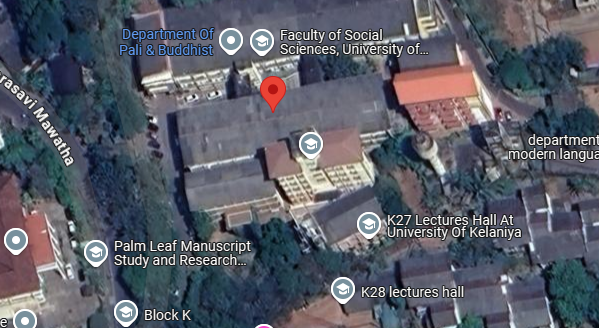Diploma in Disaster Management
The consequences of natural and anthropogenic disasters, including loss of life and property destruction,significantly hindered growth at both global and national levels, leading to severe social, economic,cultural, and environmental issues. Therefore, mitigating disaster risk necessitates comprehending the risk along with its underlying causes,and effective disaster risk communication is vital from the highest to the grassroots level to attainresilience in any nation. Enhancing disaster risk management capacity at all societal levels plays a crucial role in this event.
In the year 2012, the University of Kelaniya initiated the "Diploma Course in Disaster Management" aimed at augmenting individuals' capacities to mitigate the effects of disasters by enhancing their knowledge and skills to integrate disaster reduction practices into the development process at community, national, sub-regional, and regional levels. It offers a variety of educational possibilities for disaster managers seeking to incorporate disaster management knowledge into their continuous professional growth, and a certain number of participants completing the course.
As a dynamic and interdisciplinary field, disaster risk management continually evolves, prompting the university to revise the course content based on stakeholder consultations to incorporate new dimensions and integrate innovative science and technologies in disaster risk management.
This updated course has been created in collaboration with the Disaster Management Centre Sri Lanka and offers participants a regional, national, and worldwide perspective on disaster management. Particular attention is directed on the country's distinct catastrophe profile and matters concerning vulnerability and risk assessment, prevention, mitigation, preparedness, rehabilitation, reconstruction,
and pertinent legislation.
Course Units & Content:
Time Period:
- 01 Year
- Week-end Lectures + Field Works
Medium:
- English & Sinhala (Bi-lingual)
Entry Qualifications:
Minimum admission requirement
Minimum admission requirement is to obtain at least ‘S’ Grades for all three approved subjects at the General Certificate of Education (Advanced Level) examination in one sitting or an equivalent qualification. A foundation course equivalent to SLQF L 2 after a minimum of 12 years of schooling followed by passing an aptitude test, or completion of NVQ level 4 or accredited work experience or accredited prior learning followed by a corresponding cognitive bridging programme of minimum 30 credits as determined by the Senate may also be considered as equivalent qualification for admission to SLQF L 3 in a particular field of specialization.
G.C.E. Advanced Level (A/L) Examination
- Obtain at least three “S” grades in approved subjects in a single sitting of the G.C.E. A/L exam.
- Completion of a foundation course equivalent to SLQF Level 2 after at least 12 years of schooling, plus passing an aptitude test.
- OR completion of NVQ Level 4.
- OR relevant work experience or accredited prior learning, with a corresponding cognitive bridging programme (minimum 30 credits) as determined by the University Senate.
-
May include demonstration of ability (via interview, or aptitude test) especially if admission is competitive or if the candidate comes via a non‐standard route.
Course Fee:
Rs. 80,000.00
- 01st Instalment: Rs. 50,000.00
- 02nd Instalment: Rs. 30,000.00

